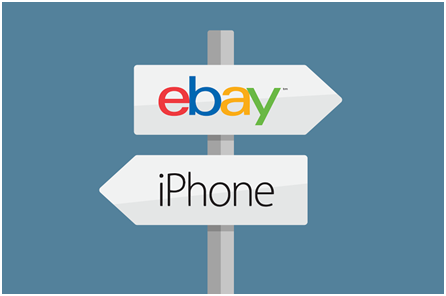The 4 Basic Rules to Proper Capitalization
Capitalization is important for us to tell what a proper noun is and where does a sentence start. It gives meaning to any word we use in a sentence. There are many rules to follow and they all depend on the language and style you prefer or need to use.
Here are some rules that every writer (and aspiring ones) should know:
Rule #1 – Capitalize the first letter of the first word of a sentence.
This is basic and doesn’t need further explanation. It gets a little bit complicated though with 20th century’s brand name starting with a small letter.
If you’re following The Associated Press Stylebook (AP), always capitalize no matter what the word is, even if the first word is a brand name like iPhone or eBay. If you’re following The Chicago Manual of Style, you can leave the initial letter as it is.

The Associated Press Stylebook: EBay is a popular e-commerce company.
The Chicago Manual of Style: eBay is a popular e-commerce company.
Of course, if you don’t feel comfortable capitalizing (or not capitalizing) the first letter of iPhone and eBay, you may want to rephrase your sentence to prevent them from appearing as the first word.
Buyers would agree that that eBay is a popular e-commerce company.
Every year consumers look forward to iPhone’s latest model.
Rule #2 – Capitalizing after a colon.
If you’re writing a sentence with a colon, followed by an independent clause, you should capitalize the first word after that colon. Don’t capitalize if you’re using colons for a list, though.
Note: This is applicable if you’re writing for an American audience. British English prefers the non-capitalized version.
U.S. version: The mystery was explained: The impala on the menu was an animal, not a car.
U.K. version: The mystery was explained: the impala on the menu was an animal, not a car.
Wrong: A red velvet cupcake recipe has many ingredients: Butter, sugar, salt, eggs, milk, pure vanilla extract, and red food color.
Correct: A red velvet cupcake recipe has many ingredients: butter, sugar, salt, eggs, milk, pure vanilla extract, and red food color.
Rule #3 – Capitalize all proper nouns.
Proper nouns are identifiers and a more specific form of a common noun, so never forget to capitalize them, especially when you talk about:
- Name of a person, place, event, thing, or establishment
- Days of the week, months, and holidays
- Race, nationality, and ethnicity, except when referring to people as black or white
Many people confuse and misuse specific words, especially those that work as a proper and common noun. While both may seem acceptable, they’re different in terms of context.
- Is it the Internet or the internet? As of 2016, the words “internet” and “web” are no longer a proper noun.
- Is it Earth or earth? Earth is when you’re referring to our planet and the earth when it’s about the ground or soil. Don’t capitalize idioms as well, like down to earth or heaven and earth.
A proper noun that has a preceding article (a, an, or the) doesn’t need capitalization, unless it’s part of the name like The North Face and The Yellow Pages.
Rule #4 – Capitalize titles.
The rules in capitalizing titles depend on the style you (or the person/company you’re writing for) wish to follow. The Associated Press Stylebook (AP) is common for journalism, the Chicago Manual of Style is a standard for publishing in the Humanities, and the MLA is most popular for academic writing.
Studying the difference between the three can be challenging, so as a general rule, here’s a list of what you should and shouldn’t capitalize:
What to capitalize:
- Nouns (man, bike, mug)
- Adjectives (small, big, pretty)
- Verbs (eat, drink, sleep)
- Adverbs (gently, quietly, proudly)
- Pronouns (he, she, it, they)
- Subordinating conjunctions (as, that, because)
What not to capitalize:
- Words with less than five letters, unless it’s the first or last word
- Articles (a, an, the)
- Coordinating conjunctions (but, for, nor, or)
- Prepositions that are less than five letters (in, on, at, to, from)
Emphasize what needs to be emphasized with capitalization. When in doubt, always check if the meaning of the word will change if it’s in the upper or lower case. You wouldn’t want to use words that may cause a misunderstanding.
Sources:
http://grammar.ccc.commnet.edu/grammar/capitals.htm
http://blog.dictionary.com/earth/
http://www.poynter.org/2016/ap-style-change-alert-dont-capitalize-internet-and-web-any-more/404664/
http://grammar.yourdictionary.com/capitalization/rules-for-capitalization-in-titles.html